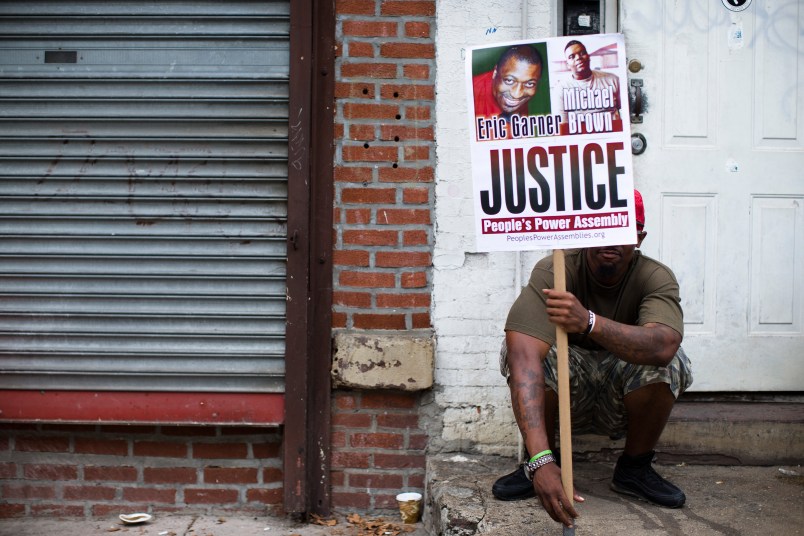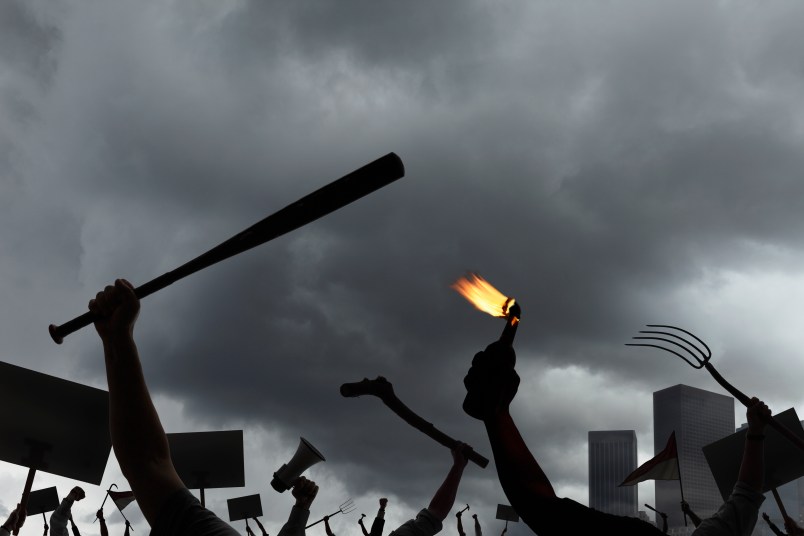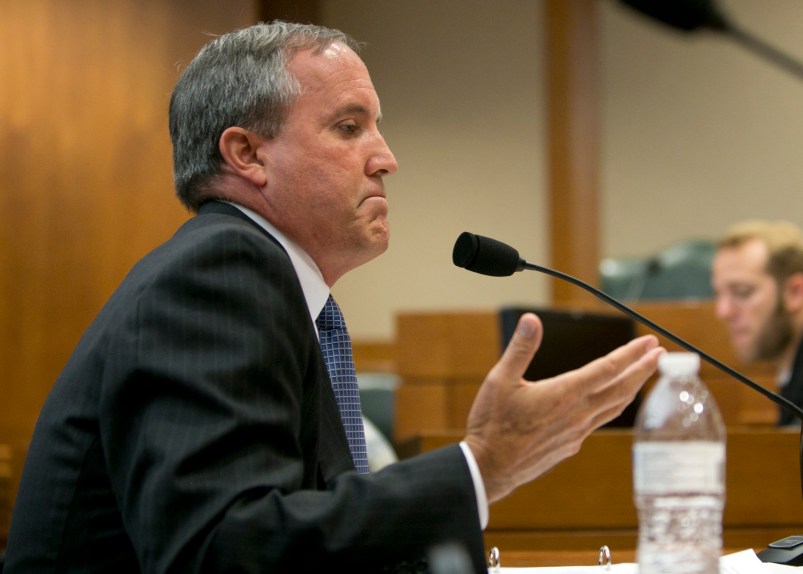One of the cars parked on the streets near my house in Washington, D.C. has a magnet on the side reading: “Stop killing our black men. Jesus loves them and we need them.” This has been a terrible year for police brutality against African-Americans.
Except it hasn’t. Because before Eric Garner and Michael Brown, there was Kimani Gray. And Kendrec McDade. And before that Rodney King. And so many others. That magnet has been on that car in my neighborhood for years—as long as I’ve lived here. More African-Americans will be killed by American police officers before it is removed.
African-American activists have pointed this out repeatedly during the heated coverage of events in Ferguson and now New York City. The protests have never been about one incident. They’ve never been about one particular tragic death. These are protests against unceasing, unaccountable violence over many years. These are protests responding to a systemic failure that has roots as deep and as old as American chattel slavery.
Which is another way of saying that this wave of public attention—would that it were “public outcry”—is really a response to a failure of the American criminal justice system. And in a country like ours, failures in meting out justice are really failures of the broader American political experiment.
Sadly, this is why police violence against African-Americans has been so pervasive for so long without attracting much attention from white conservatives or progressives. To acknowledge that American police routinely brutalize African-Americans and their communities would be to admit that the United States has failed—is failing—at some of its core promises. For if our police behave so and our systems of judicial oversight are toothless to hold them accountable, that would mean that equality before the law is a mirage.
These are uncomfortable truths to face. And they are more damning than more quotidian forms of systemic racism. It is one thing to disproportionately assign African-American children to ineffective, under-resourced schools. It is quite another to kill African-American men without ever facing a trial (let alone a conviction).
White conservatives and progressives alike have been reticent to face the steady tragedy of police violence against African-Americans in the United States. Which is sadly consistent for conservatism, but a catastrophic failure by white progressives.
Start with the easier one. Here’s a general view of the spirit animating conservativism (borrowed from British philosopher Michael Oakeshott): every change, every reform, every novel idea represents the potential for gain and improvement. But it also represents a certain loss of familiarity. In general, conservatives resist changes because they fear losing elements of life and behavior with which they are comfortable in exchange for the uncertainty of reforms. A cynic might note that this often means conservatism is driven by the fear of losing familiar privileges and advantages.
But one of the most familiar elements of American life is our meritocracy mythology. We want badly to believe in the fairness of our markets in allocating resources to the hardworking and the justice of the legal procedures we use to allocate guilt and innocence. To admit that African-Americans are treated horribly by these systems—and have been for years—is to threaten a cherished and familiar aspect of conservatives’ national self-image. So they avoid facing that at all costs.
What about progressives? Oddly enough, something similar is going on. To be an American progressive—going back a century to Herbert Croly and John Dewey—is to believe that the United States’ institutions can be made better to fit American ideals. To admit that something can be improved, of course, is to admit that it has fallen short. Which is why progressives have always led American fights against racial injustice.
But since progressivism has always been about redeeming the American experiment, it can also be blind to how tightly our ugliest national sins are interwoven with our national institutions. The late progressive philosopher Richard Rorty opened Achieving Our Country with this line: “National pride is to countries what self-respect is to individuals: a necessary condition for self-improvement.” Notwithstanding conservative efforts to define progressivism in opposition to the United States’ history and identity, most progressives see the United States as a political experiment worth improving.
Which is to say that white progressives, too, are prone to overlooking the ways that American racism is comprehensive and systemic. To admit that the problem of police violence is deeply embedded in who we are as a nation is to face the possibility that earlier progress was vastly insufficient in solving the problem. Worse still, it may indicate that the project of becoming a better America is itself flawed. African-Americans certainly have reason to doubt that white Americans are ready to embark on meaningful reforms.
Perhaps white progressives have been so slow to make inequitable, violent policing of African-American communities a priority because they’ve struggled to accept that things could really be as bad as all that. And they’ve been loath to realize that this violence is symptomatic of enormous systemic injustice. But if they cannot see it now, then perhaps their radical leftist critics have been correct all along—perhaps real justice requires overhauling the whole American system.
“Feelings of intense shame or of glowing pride,” Rorty wrote, “[are] necessary if political deliberation is to be imaginative and productive.” Yesterday in New York, and for months in Ferguson, Americans have found ample reasons for shame. It remains to be seen whether we—especially American progressives—will use it as a spark for moving the United States closer to the country we believe ourselves to be.
Conor P. Williams, PhD is a Senior Researcher in New America’s Early Education Initiative. Follow him on Twitter @conorpwilliams. Follow him on Facebook.









